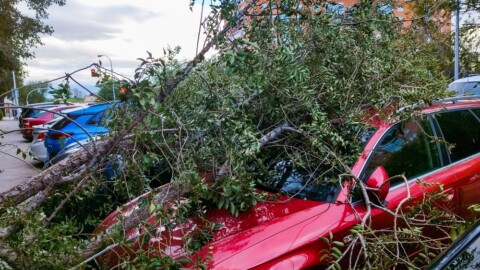A potential shortage of workers needed to deliver the $24 billion major road and rail investments allocated in the 2018/2019 Federal Budget could mean inevitable cost-blowouts, delays and flow-on effects for local government.
Research from Engineers Australia (EA) has shown plummeting rates of secondary students taking up STEM subjects, raising concerns that the industry could face greater shortages of engineers in the future.
Australia already relies heavily on skilled migration to fill engineering positions; EA data shows 57 per cent of engineers working in Australia were born overseas compared to 40 per cent in other professions.
Institute of Public Works Engineering Australasia (IPWEA) IPWEA CEO, Robert Fuller, said, “Managing our nation’s critical infrastructure is about funding both new capital infrastructure as well as making provision for its ongoing operational expense. There is little point in funding one without the other.”
Mr Fuller expressed concern that any planning for major infrastructure projects also needed to take into consideration the availability of skilled workers.
“We are thrilled and encouraged to see continuing Federal Government investment in vital infrastructure; this is a significant investment in our country’s future. At the same time, we are recommending that every related aspect of this investment be carefully considered.
“Operating and maintenance budgets, together with workforce projections, are a key part of that.
“The success of these billions of dollars of projects is underpinned by first ensuring an appropriate workforce is able to be mobilised – and that’s in doubt at the moment.”
Mr Fuller said any skills shortage could result in project delays, which in turn could drive costs up. He said this is a major opportunity for the Federal Government to leverage its economic purchasing power to ensure that skills for the future are a core element of these projects.
As more engineers are pulled into major capital works projects, Mr Fuller warned local governments, already struggling to compete with the private sector, could find it more difficult to attract talent. Local governments in regional areas could be particularly impacted.
“If an increasing number of civil engineers are being pulled into major projects, it follows that there will be a dwindling pool of candidates with the same skills available to councils,” Mr Fuller said.
“This will have significant impacts on the ability of local governments to manage our community’s public infrastructure, both in the immediate and long-term.
“Our recommendation is the Federal Government support this strong investment in Australian infrastructure with a similarly robust plan to secure a strong and skills-ready workforce.”
Denita Wawn, CEO of Master Builders Australia, said, “Labor’s plan to tackle skillsshortages by scrapping upfront fees for 100,000 TAFE students and modernising TAFE facilities is a very positive step as our industry strives to attract more apprentices.
“But Master Builders will engage with Labor on the need to support an open and contestable national training system that provides students and employers with choices to access the most relevant training to secure a job.
“We believe this is an important pathway to promoting a career in the building and construction industry.”


















The problem in the sector has more to do with inconsistency in spending or put another way cyclical spending (periods of big investment then periods of no investment). This kind of inconsistency in sector spending chases people away from the industry because it causes “job today no job tomorrow” type of employment.
Gradually releasing investment, planning approvals, etc over longer periods would largely eliminate this “job today no job tomorrow” scenario in the sector & will attract more interest because people will have more certainty of longer term employment.